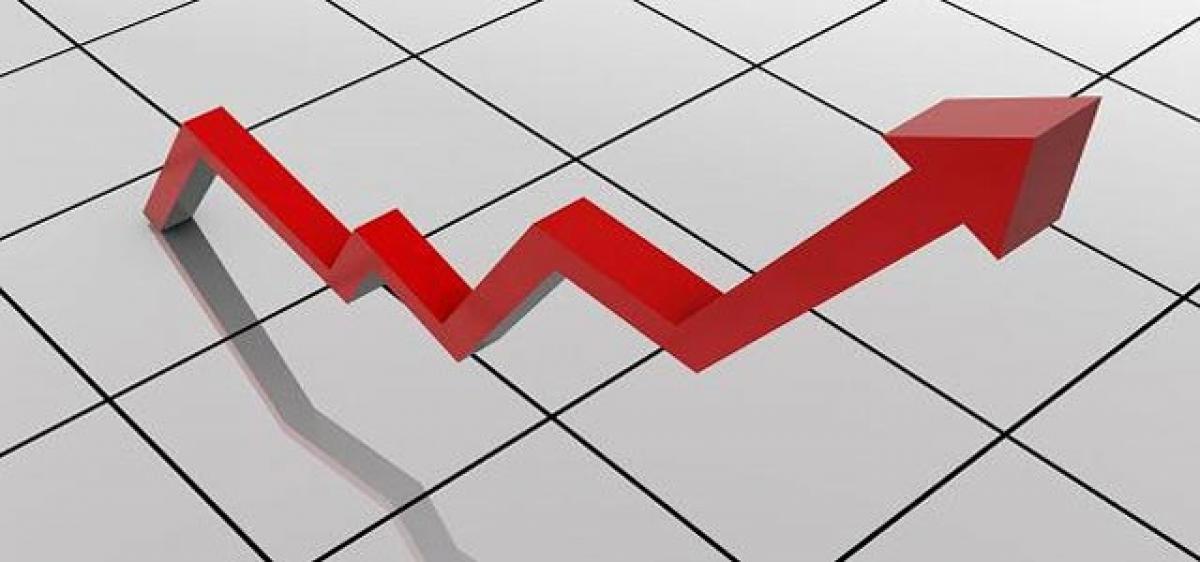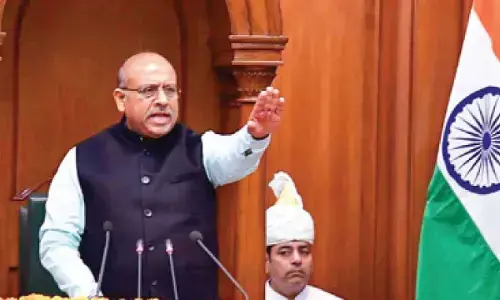Market rebound

Indian stock markets weathered the demonetisation storm and bounced back to pre-note ban levels earlier this month even though the worries of a slowdown in GDP growth and corporate number still linger. This is a testimony to the underlying strength of the Indian economy as well as the bourses.
Indian stock markets weathered the demonetisation storm and bounced back to pre-note ban levels earlier this month even though the worries of a slowdown in GDP growth and corporate number still linger. This is a testimony to the underlying strength of the Indian economy as well as the bourses.
The benchmark BSE Sensitive Index (Sensex) closed 132 points higher at 27,591 points on November 8, 2016, the day Prime Minister Narendra Modi took the nation by surprise by announcing his government’s decision to demonetise high-value notes of Rs 500 and 1,000 denominations that constituted 86 per cent of the currency in circulation.
Even as the country plunged into cash chaos on the following day in the wake of RBI failing to supply adequate quantity of new currency notes, stock markets also reacted negatively with Sensex shedding 349 points on November 9. Though the markets bounced back the next day, it was a temporary blip and they continued their southward journey for next 75 days before reclaiming pre-note ban levels on January 26, as currency situation eased.
Stock markets continued to remain strong despite global headwinds arising out of new US President Donald Trump’s anti-immigration policies and plans to restrict H1-B visas, which will invariably impact the Indian IT sector. The $150-billion software industry in India heavily depends on the US for its survival and growth, and gets over 50 per cent of its revenues from that country. So, it’s no surprise that stock prices of Indian IT majors, including TCS and Infosys, tanked in January last week after a Bill was introduced in the US House of Representatives, seeking, among other things, more than doubling of the minimum salary of H1-B visa holders to $135,000 from $60,000 per annum now.
Though the move will provide windfall gains for the lucky IT professionals who will secure H1-B visas in the post-Trump era, such a steep salary hike will hit the bottom line of Indian IT companies. That’s why IT stocks took a hit in recent times. However, the Union Budget for 2017-18 presented by Finance Minister Arun Jaitley on February 1 came as big relief for the stock market investors.
This reflected in the relief rally that the bourses witnessed on the Budget Day and IT stocks were also not immune to that. It was widely feared that Finance Minister would introduce tax on long-term capital gains, in addition to increasing service tax to 18 per cent. But Jaitley neither touched the service tax, nor levied the long-term capital gains tax, thereby giving fillip to the markets.
The Central government’s plan to restrict fiscal deficit at 3.2 per cent in 2017-18 before bringing it down to 3 per cent in FY19, also improved the market sentiments. With demonetisation blues behind it and Jaitley coming out with not-so-harsh Budget, Indian stock markets are likely to follow a steady course upwards in near-term. Global headwinds like interest rate hike by US Fed and Trump’s new policies will have a bearing on the Dalal Street though. So will also be the moves that RBI takes on monetary policy back home.

















